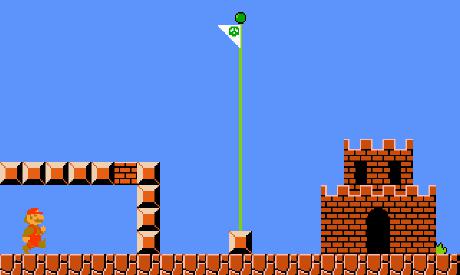| Classic Nintendo Games Are NP Hard |
| Written by Alex Armstrong | |||
| Friday, 09 March 2012 | |||
|
You may have have thought that games like Mario, Donkey Kong and so on were hard at the time you were playing them, but you probably didn't guess that they were NP-hard. NP-hard problems are in a sense the ones that are most difficult to solve by computational means because the time it takes to find a solution tends to increase so quickly with the size of the problem that it just isn't practical to perform the computation. Now we have some results from computer scientists at Universite Libre de Bruxelles and MIT Computer Science and Artifi cial Intelligence Laboratory (CSAIL) that many classic games contain within them an NP-hard problem. It is a bit like the discovery of a black hole at the center of every galaxy. Should either fact be surprising?
Computer games often involve an element of search, and many NP-hard problem are about searching for a path or some arrangement of things that satisfies a condition. These are the sorts of things that get put in games to add a splash of logical difficulty to the physical skill of clicking buttons at the right time. Indeed, the clicking of the button at the right time is factored out of these proofs of complexity - these are results that apply to a perfect player with infinite speed and reaction times of zero. The proofs are based on showing that the problem of deciding if a goal point is reachable from a starting point is NP-hard. The games are also generalized in that the size of the board is increased. With these small changes it is proved that the following games are NP-hard:
The results apply to
So are all platform games NP-hard? Almost certainly not, but are all "good" platform games NP-hard - a much more interesting problem. More informationClassic Nintendo Games are (NP-)HardarXiv:1203.1895v1 Further Reading Physics Is NP Hard Super Mario - Nintendo goes forward
Comments
or email your comment to: comments@i-programmer.info
To be informed about new articles on I Programmer, subscribe to the RSS feed, follow us on Google+, Twitter, Linkedin or Facebook or sign up for our weekly newsletter.
|
|||
| Last Updated ( Sunday, 11 March 2012 ) |


